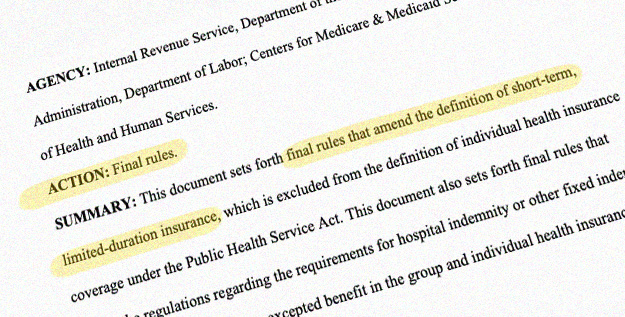
Q. My company offers health insurance coverage for the whole family, and fully covers the portion of the premium to cover me. But they don’t pay any of the premium to add dependents to the plan; if I want to add my kids, I have to pay the full cost of their premium. Can I buy individual policies for my children instead? Will they qualify for subsidies?
A. Prior to 2023, your children would not have been eligible for subsidies in the exchange/marketplace. But the rules have changed and they might now be eligible for subsidies. They might also be eligible for Medicaid or CHIP, depending on your household income (nothing about that has changed).
The ACA’s employer mandate requires businesses with 50 or more full time-equivalent employees to offer health insurance to their full-time employees and those employees’ children. But while the coverage must be considered affordable for the employees, there is no requirement that the employer funds any portion of the premiums for dependents (the average employer funds the majority of premiums even for family coverage, but they’re not required to do so and smaller businesses are less likely to cover the cost to add dependents to the plan).
In order to be in compliance with the employer mandate, the coverage that employers offer to their full-time employees for employee-only coverage can’t cost an employee more than 9.12% of the employee’s household income in 2023. But there’s no affordability requirement for the coverage they offer to employees’ dependents.
The family glitch fix
Prior to 2023, if an employer’s offer of self-only coverage was deemed affordable for the employee (ie, no more than 9.12% of household income in 2023) and family members could be added to the plan, nobody in the family was eligible for subsidies in the exchange. This was true regardless of how much it would cost to actually add the family members to the employer’s plan.
But the rules are different starting in 2023. The IRS has fixed the so-called “family glitch,” making some employees’ family members newly eligible for subsidies in the exchange.
Under the new rules, if the cost to cover the family under the employer’s lowest-cost plan (that still provides minimum value) is more than 9.12% of the family’s household income in 2023, the family members are potentially eligible for subsidies in the exchange. The employee is not subsidy-eligible, assuming their self-only coverage is considered affordable, which is usually the case. And the family members in that situation may or may not actually be eligible for subsidies, since it depends on age, location, and total household income.
Even if your kids aren’t eligible for subsidies in the exchange, you still have the option to buy coverage for them in the individual market (through the exchange or off-exchange) and pay full price. Depending on the coverage you need and the cost of the employer-sponsored plan, that may or may not end up being a good value.
In addition, Medicaid and Children’s Health Insurance Program (CHIP) eligibility thresholds are quite generous in some states. If your kids are eligible for Medicaid or CHIP, you may be able to enroll them even if they have access to coverage from your employer (eligibility guidelines vary by state). If they’re eligible for Medicaid or CHIP, they won’t be eligible for subsidies in the exchange — nothing has changed about that.
Louise Norris is an individual health insurance broker who has been writing about health insurance and health reform since 2006. She has written dozens of opinions and educational pieces about the Affordable Care Act for healthinsurance.org.









